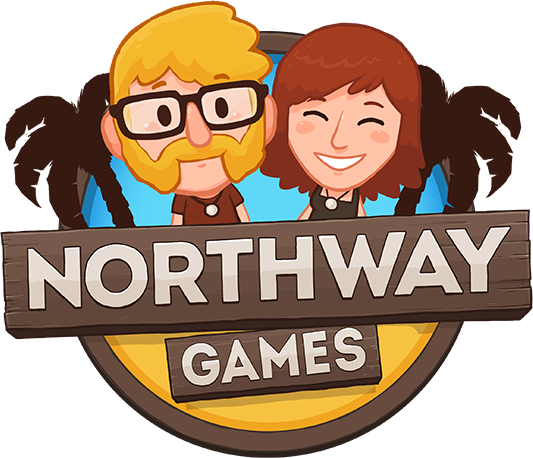 I think about thinking a fair amount. I recon it’s valuable for a game author to have some understanding of thinking for a number of reasons. The most obvious reason is to be able to predict how players will play your games. The other big reason is to make yourself think better. I think I’m starting to see some fruit on this second point so I thought I’d write up my thoughts on it.
I think about thinking a fair amount. I recon it’s valuable for a game author to have some understanding of thinking for a number of reasons. The most obvious reason is to be able to predict how players will play your games. The other big reason is to make yourself think better. I think I’m starting to see some fruit on this second point so I thought I’d write up my thoughts on it.
Thinking. Do you ever think about it? What are you thinking right now? Do you know how you read? I don’t know how I read. I also don’t know how I decide if something is funny or how I decide that I don’t like that dude in the corner drinking a Chimay. I don’t know why… he just rubs me the wrong way. This is because most of our thinking is subconscious. That’s really just a way of saying we don’t have introspective access to it. I like that phrase “don’t have introspective access to” better than “subconscious” because it’s less mysterious.
My brain reads quite well. I just can’t “watch” it read. I don’t know what strategies it’s using. You konw taht tinhg wehre you can mix up all the lteetrs in the mdidle of wrods but can siltl raed tehm? I don’t know why that’s true. I think these subconscious processes are a lot more common in day to day living than we generally believe. Advertising works, but everyone says advertising doesn’t work on them. This is because it doesn’t effect processes you have introspective access to. It still changes your behaviour because grocery-store decision making is a largely subconscious task. You think you control it a lot more than you do. Your conscious brain (mostly in the frontal cortex) might add some variables to the equation or be the final arbiter of that decision but the heavy lifting is happening behind the scenes. Did you know people with damage to the emotional center of their brain can’t make breakfast-cereal decisions? That’s because conscious thought isn’t the prime mover behind those choices.
Lets look at problem solving and creative thought. I make puzzles games and I love user testing. This means I have spent a lot of time looking over people’s shoulder as they solve problems. Often problems that require a lot of creative thought. I have spent hours upon hours engaged in this and one of the things I’ve learned is that people don’t have any idea how they are coming up with creative solutions. We don’t have introspective access to that part of the brain. I know a very bright man here in Costa Rica who makes a living having really good ideas. He’s a serial entrepreneur who has won and lost sacks of money many times in his life. His life revolves around having good ideas and he is convinced that they come from some shadowy spirit world. He is not very religious but when pressed will present good ideas as evidence for the supernatural. This also jazzes with everything you hear about authors metaphorically “channeling” their books and sculptors “just removing the excess stone around the figure hidden in the rock”. We don’t know how we do complicated things. Which makes sense.
 I’m sure you’ve heard about the 5 +/- 2 rule of short term memory. The idea is that we can only store 3-7 things in our short term memory and after that we have to kick something old out to make room for the new. When you think about it this has pretty big consequences. It means any problem with more than 7 moving parts is impossible to think about consciously. Problems like this certainly include books and video games. Worse than that, creative leaps don’t seem to have anything at all to do with conscious thought. They just conjure themselves out of some crazy pattern-matching engine deeper in our brain. The lesson here is that we can’t hold a whole problem in our head and we can’t make creative leaps with the fore-brain so stop trying.
I’m sure you’ve heard about the 5 +/- 2 rule of short term memory. The idea is that we can only store 3-7 things in our short term memory and after that we have to kick something old out to make room for the new. When you think about it this has pretty big consequences. It means any problem with more than 7 moving parts is impossible to think about consciously. Problems like this certainly include books and video games. Worse than that, creative leaps don’t seem to have anything at all to do with conscious thought. They just conjure themselves out of some crazy pattern-matching engine deeper in our brain. The lesson here is that we can’t hold a whole problem in our head and we can’t make creative leaps with the fore-brain so stop trying.
Instead, think of the fore-brain as a sort of inept cook. You can decide what goes into the pot and you can decide how much the heat is turned up but that’s about it. The hind-brain seems to be built mostly on pattern matching so fill it up with patterns. These are ideas, images, feelings, anything a human can comprehend. If you have a specific problem cast around for anything related to that idea and push it in. Then push in a bunch of stuff that’s only tangentially related. Once you get it in there turn up the heat. Really focus on that idea. Emotion is the language of the subconscious so you have to really give a shit about your problem. Agonise over the solution. Imagine failing to find one and how your game will then fail, no one will ever play it, and you’ll have to go back to making websites for law offices. Then let it simmer. My personally like to slightly distract myself. Take a walk, stare at the clouds, untangle some headphone cords. Give your brain some very light work. If you can walk around somewhere new then do that. The extra visual stimulus seems to help things percolate. Don’t mind too much if your conscious mind wanders. Aim for a pleasant thoughtlessness but if you end up trying to remember the order of all the original Mario levels that’s ok. Fighting it is going to be counter productive. Sleep seems to be a pretty productive time so have a good hard long think about your problem while you’re falling asleep as well.
I don’t really worry about down time. I’m pretty lazy so I never worry about letting “work” thoughts overtake personal time. I think this is a great advantage. Derek Yu compares our games to Head Crabs. Things that control us utterly. I think that’s why we’re successful. We live our problems in a way less invested professionals don’t. Our stew is always simmering and when it’s finally ready it will be filled with flavors the world has never tasted and they will love it. Even if we have no idea how we did it.


Comments
17 responses to “How to Have Good Ideas”
Ha, it looks like you’ve been reading Jonah Lehrer’s How we Decide? A highly recommended book for any game designer.. did you also read Dan Ariely’s Predictably Irrational?
My thinking is based on a lot of sources. I like Dan Ariely but haven’t read Jonah Lehrer.
My favorite book is Gerd Gigerenzer’s Gut Feelings. Which has the advantage that it wasn’t written by an ecconomist (they always have a slightly warped lens). Ramachandran is also great.
this is my favorite thing ever though. It’s a Jeff Hawkins lecture at UBC about possible mechanisms of thought.
Hmm, links aren’t underlined… here it is in plan text:
http://www.youtube.com/watch?v=TDzr0_fbnVk
… [Trackback]
[…] Information to that Topic: northwaygames.com/how-to-have-good-ideas/ […]
… [Trackback]
[…] Here you will find 94817 additional Info to that Topic: northwaygames.com/how-to-have-good-ideas/ […]
… [Trackback]
[…] There you will find 17314 additional Information to that Topic: northwaygames.com/how-to-have-good-ideas/ […]
… [Trackback]
[…] Info to that Topic: northwaygames.com/how-to-have-good-ideas/ […]
… [Trackback]
[…] Info to that Topic: northwaygames.com/how-to-have-good-ideas/ […]
… [Trackback]
[…] Find More on that Topic: northwaygames.com/how-to-have-good-ideas/ […]
… [Trackback]
[…] Info on that Topic: northwaygames.com/how-to-have-good-ideas/ […]
… [Trackback]
[…] Read More to that Topic: northwaygames.com/how-to-have-good-ideas/ […]
… [Trackback]
[…] Info on that Topic: northwaygames.com/how-to-have-good-ideas/ […]
… [Trackback]
[…] Here you will find 71768 more Information on that Topic: northwaygames.com/how-to-have-good-ideas/ […]
… [Trackback]
[…] Read More Info here to that Topic: northwaygames.com/how-to-have-good-ideas/ […]
… [Trackback]
[…] There you can find 34764 more Info on that Topic: northwaygames.com/how-to-have-good-ideas/ […]
… [Trackback]
[…] Read More Info here to that Topic: northwaygames.com/how-to-have-good-ideas/ […]
… [Trackback]
[…] Read More to that Topic: northwaygames.com/how-to-have-good-ideas/ […]